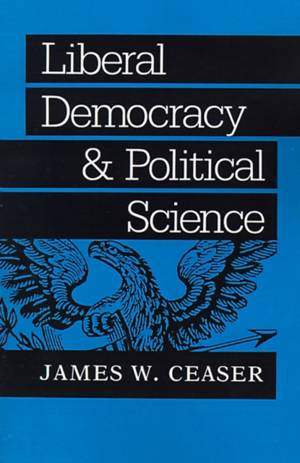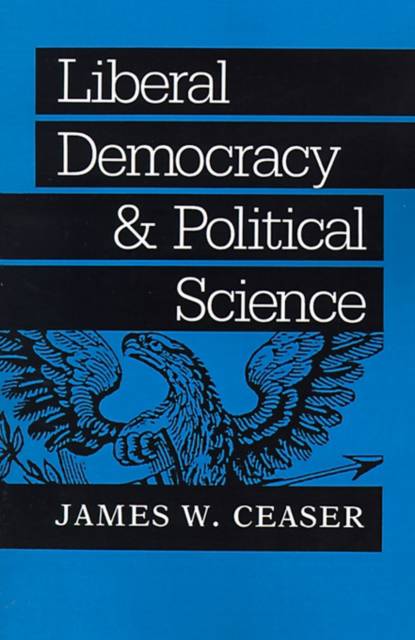
- Afhalen na 1 uur in een winkel met voorraad
- Gratis thuislevering in België vanaf € 30
- Ruim aanbod met 7 miljoen producten
- Afhalen na 1 uur in een winkel met voorraad
- Gratis thuislevering in België vanaf € 30
- Ruim aanbod met 7 miljoen producten
Omschrijving
Do political scientists in a liberal democracy bear a special responsibility that goes beyond their academic persuits? In Liberal Democracy and Political Science James W. Ceaser, a well-known scholar or American political parties and the presidency, argues that they do, and he challenges collegues and students to re-examine what they do as political scientists.
Ceaser begins with the observation that liberal democracy is a compound of two elements not easily wed--constitutionalism and republicanism. As such, it has a problem maintaining itself. The role of political science, he argues, is to perform the "superintending function" of keeping these parts together. Ceaser shows how traditional political science--an amalgam of historical sociology, a general political science of regimes, and a specific political science of different countries--once provided a foundation for performing this function. He then describes the failing of contemporary political science, both predictive and what Ceaser call the "new normativism," in this regard. What is needed, Ceaser argues, is a reconstruction of political science that borrows freely from both past and present-day practice.
Ceaser concludes with a case study that puts his theory to work--and analysis of the susceptibility of our political culture to the influence of intellectuals and to contemporary critics of the Constitution.
Specificaties
Betrokkenen
- Auteur(s):
- Uitgeverij:
Inhoud
- Aantal bladzijden:
- 256
- Taal:
- Engels
- Reeks:
Eigenschappen
- Productcode (EAN):
- 9780801845116
- Verschijningsdatum:
- 1/09/1992
- Uitvoering:
- Paperback
- Formaat:
- Trade paperback (VS)
- Afmetingen:
- 152 mm x 230 mm
- Gewicht:
- 381 g

Alleen bij Standaard Boekhandel
Beoordelingen
We publiceren alleen reviews die voldoen aan de voorwaarden voor reviews. Bekijk onze voorwaarden voor reviews.











